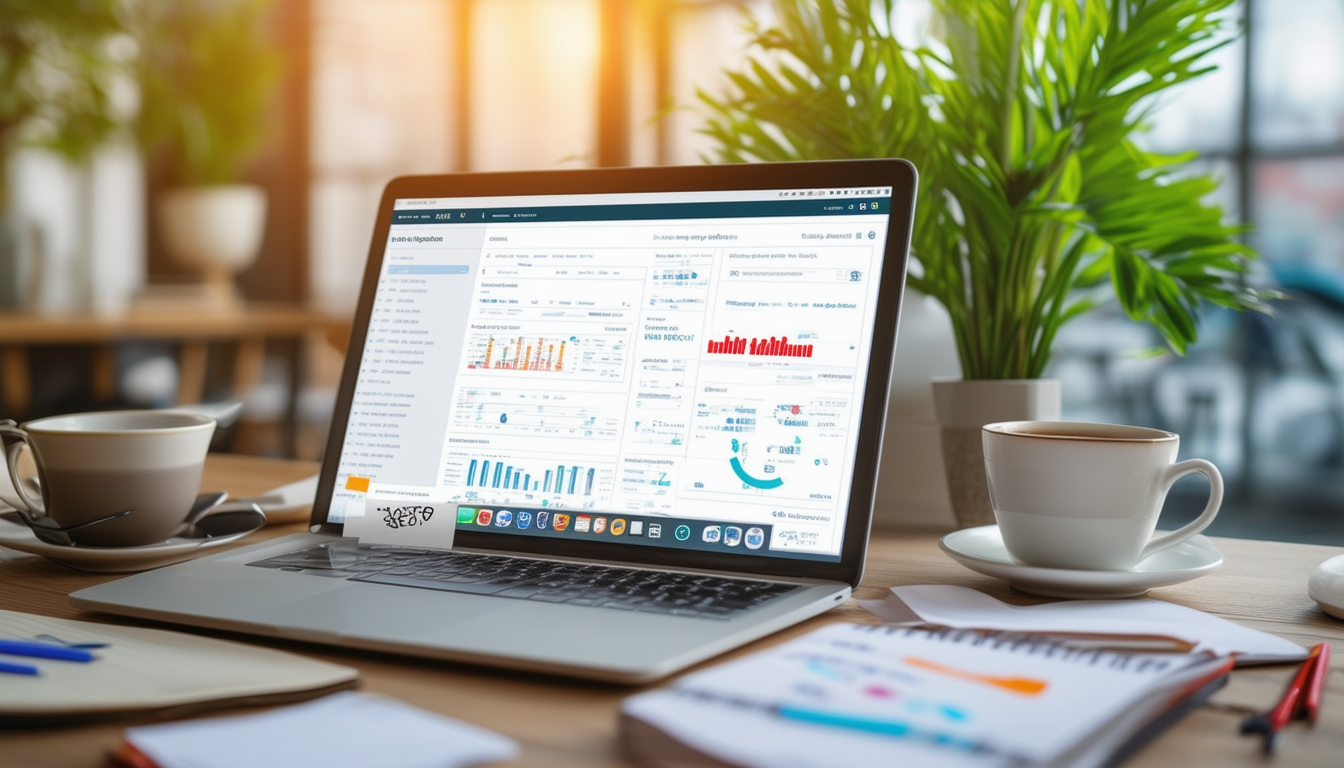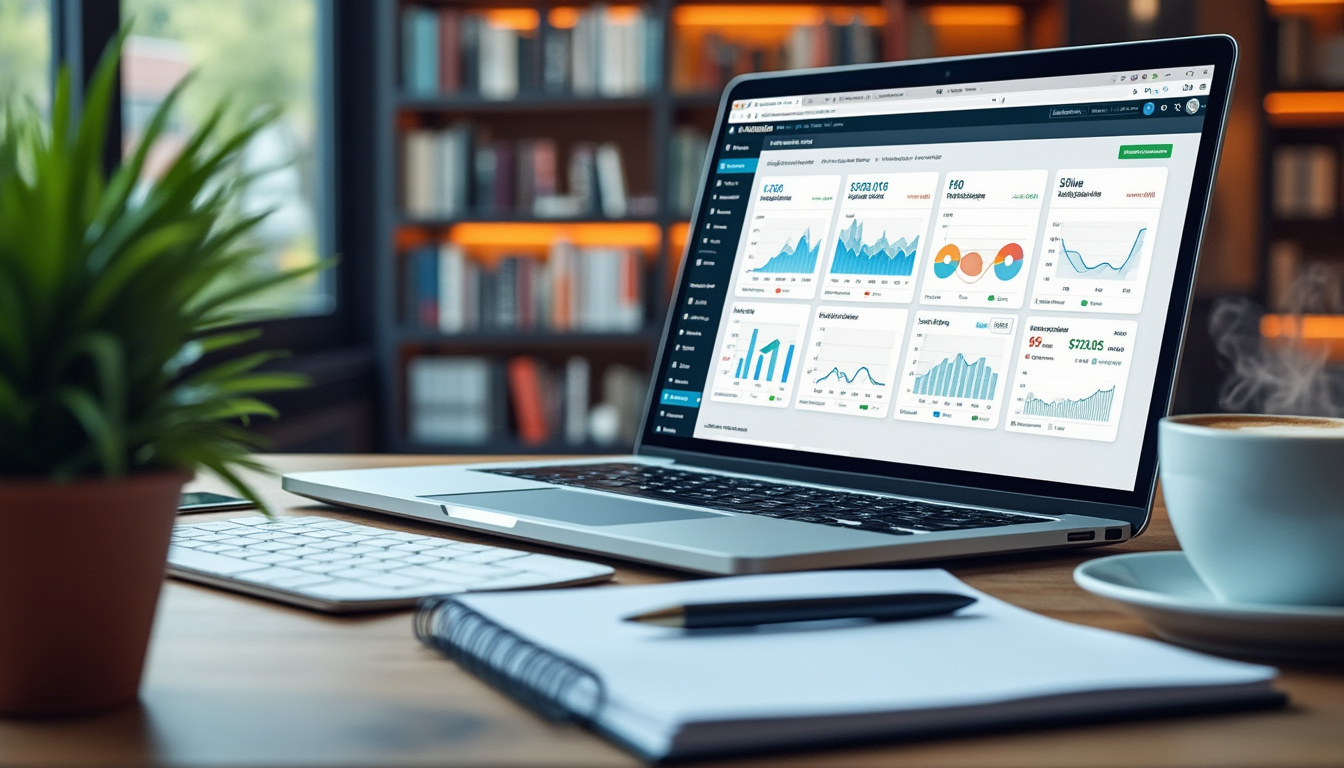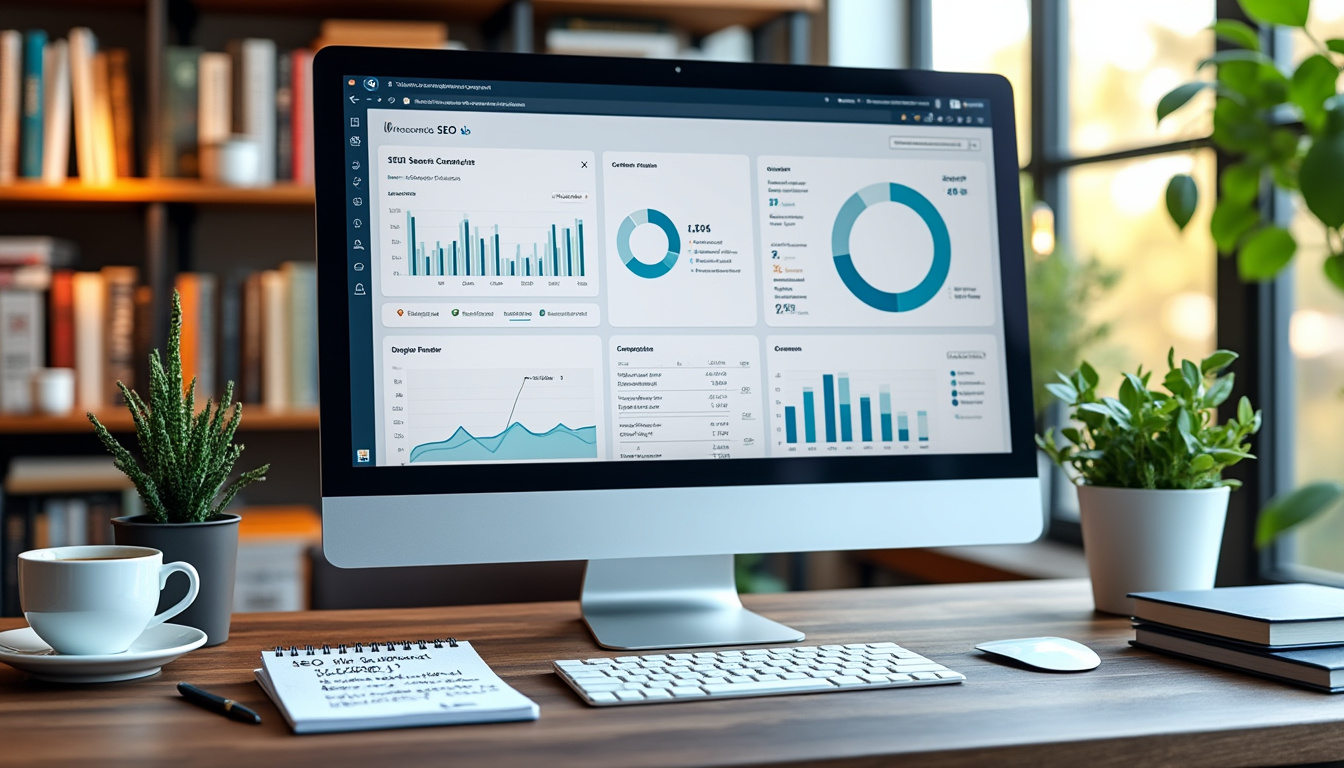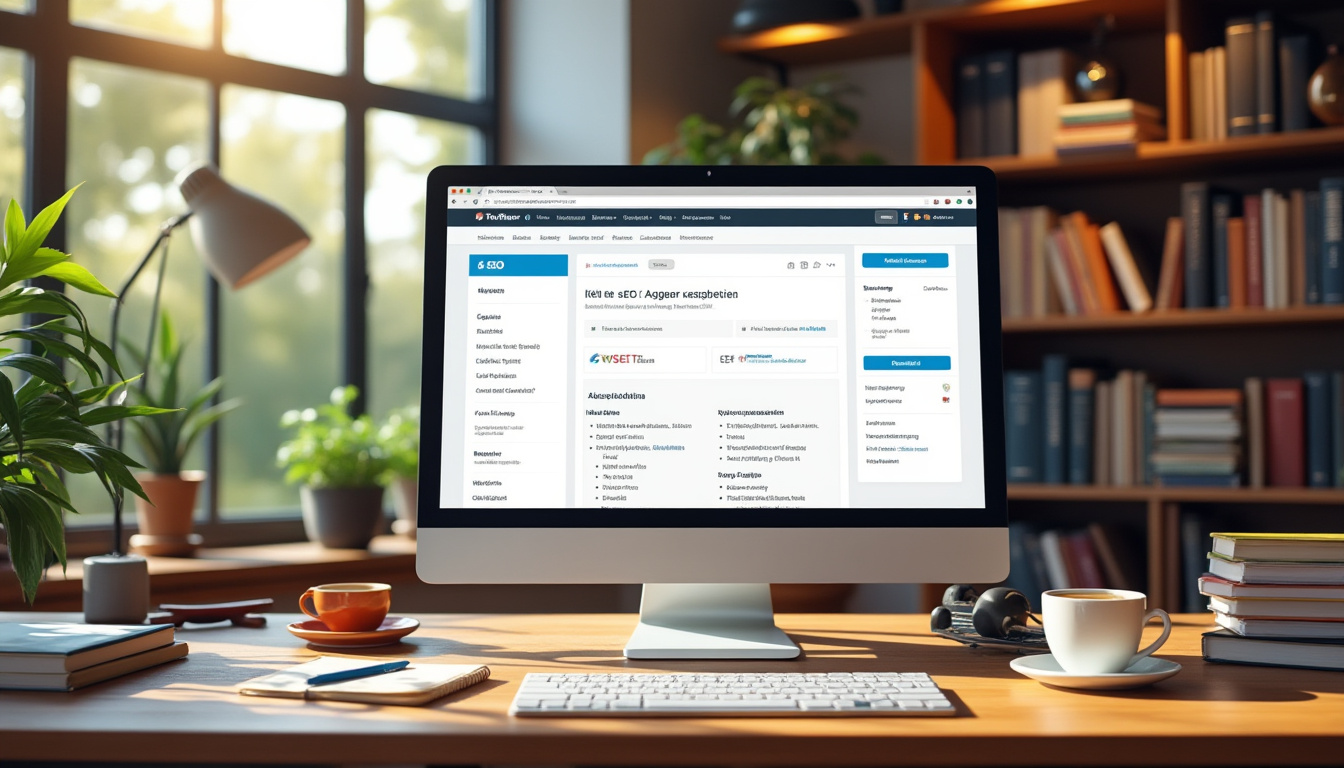To enhance website speed for improved SEO on WordPress, it is essential to implement several strategies. Start by choosing a fast theme that prioritizes performance. Utilize caching solutions, such as WP Rocket, to significantly reduce page load time. Optimize images through compression and leverage lazy loading techniques. Additionally, setting browser caching and employing a Content Delivery Network (CDN) like Cloudflare can greatly boost speed. Finally, consider utilizing SEO plugins like Yoast SEO to ensure your content is well-optimized for search engines while maintaining fast performance.
In the world of WordPress, website speed is a crucial factor that influences both user experience and SEO performance. Enhancing the speed of your website not only helps in retaining visitors but also plays a significant role in ranking higher on search engines. This article will explore various strategies to optimize your WordPress site for speed, thereby improving your SEO capabilities.
Understanding the Importance of Website Speed
The speed at which a website loads can dramatically impact its overall performance. Websites that load quickly tend to have lower bounce rates and higher engagement levels. Moreover, search engines like Google prioritize fast-loading sites in their rankings. Therefore, ensuring that your WordPress site is quick and responsive is essential for achieving better visibility online.
Optimizing Images for Speed
Images play a significant role in enhancing visual appeal, but they can also slow down your site considerably if not optimized. To improve speed, it is crucial to compress images before uploading them. Tools such as TinyPNG or plugins like Imagify can help in achieving the desired file size without losing quality. Additionally, using lazy loading allows images to load only when they come into the viewport, further enhancing speed.
Utilizing Caching Plugins
Caching is one of the most effective methods for speeding up WordPress sites. By storing static versions of your content, caching plugins help reduce the load time by serving these pre-generated files rather than querying the database every time a page is requested. Popular caching solutions like WP Rocket or W3 Total Cache automate much of this process. For more detailed instructions, check out this comprehensive guide.
Choosing a Fast WordPress Theme
The theme you choose for your WordPress site can drastically affect its loading time. Selecting a lightweight and optimized theme can lead to improved speed. Themes that are bloated with excessive features can weigh down your site, negatively impacting both speed and SEO. Look for themes that are optimized for speed and SEO, such as Astra or GeneratePress.
Minifying CSS and JavaScript
The code that runs a website can often contain unnecessary whitespace and comments that increase page size. By minifying CSS and JavaScript files, you can reduce their sizes and enhance loading times. Tools such as Autoptimize can assist in this process, automating the minification of your website’s files.
Implementing Content Delivery Networks (CDN)
A Content Delivery Network (CDN) can significantly enhance the speed of your WordPress site by distributing your content across various servers located worldwide. This means that users will be served your website’s data from the closest server, thereby reducing load time. Services like Cloudflare or StackPath offer reliable CDN solutions you can integrate into your WordPress site.
Leveraging Browser Caching
Browser caching can greatly improve the speed of recurring visitors. This process allows the browser to store certain elements of your website, so when a user returns, their browser doesn’t have to reload the entire page. A simple way to implement browser caching is by adding rules into your .htaccess file or using a caching plugin.
Cleaning Up Your Database
Over time, your WordPress database can become cluttered with unnecessary data such as post revisions, spam comments, and transient options. Regularly cleaning and optimizing your database can lead to improved performance. Plugins like WP-Optimize can automate this process, making it easier for you to maintain a clean database.
Using a Fast Web Host
The quality of your web host can be a major determinant in your site’s speed. Opting for a managed WordPress hosting provider can ensure better performance, as they are optimized specifically for WordPress. Providers like SiteGround or Bluehost often offer features that enhance speed and reliability.
Regularly Updating Your WordPress Site
Keeping your WordPress site updated with the latest versions of plugins and themes is essential for optimal speed. Outdated software can lead to security vulnerabilities and performance issues. Make it a habit to regularly check for updates to ensure your website runs smoothly and efficiently.
Reducing External HTTP Requests
Every external file linked to your website, such as style sheets, scripts, and images, requires additional HTTP requests. Reducing the number of these requests can help speed up your site. This can be achieved by combining files, using fewer plugins, and hosting certain files locally rather than linking to them externally.
Enabling Gzip Compression
Gzip compression reduces the size of files sent from your server to increase the speed of data transfer. It can vastly improve loading times for your users. Most caching plugins will have an option to enable Gzip compression automatically, simplifying the process for website owners.
Monitoring Your Website Speed
Regular monitoring of your site’s speed is crucial in maintaining performance gains. Tools like Google PageSpeed Insights, GTmetrix, or Pingdom can provide insights into your website’s loading times and identify problem areas that need attention.
Testing and Tweaking for Optimal Speed
After implementing various speed optimization techniques, it is essential to continually test and tweak your website for optimal performance. A/B testing different elements can provide insights into what works best for your audience, allowing you to enhance both speed and user experience further.
Leveraging Responsive Design
With the increasing use of mobile devices, ensuring your WordPress site is responsive is crucial for speed and user experience. Responsive designs adjust to the size of the screen they are viewed on, offering a better experience across devices. Ultimately, this can lead to improved SEO as well.
Implementing these strategies to enhance your website’s speed will result in better performance and an improved SEO ranking on search engines. By focusing on optimizations for images, leveraging caching, using a reliable host, and regularly monitoring your site, you’ll create an engaging experience for users that encourages traffic and enhances visibility.
For a deeper understanding of how to enhance your WordPress website speed, explore resources like WordPress SEO Support and Site Speed Support.
Additionally, fixing common WordPress problems can also be beneficial. For more details, please refer to this guide.
As you work on these optimizations, remember that the goal is to provide a seamless experience for your users while satisfying the requirements set by search engines.
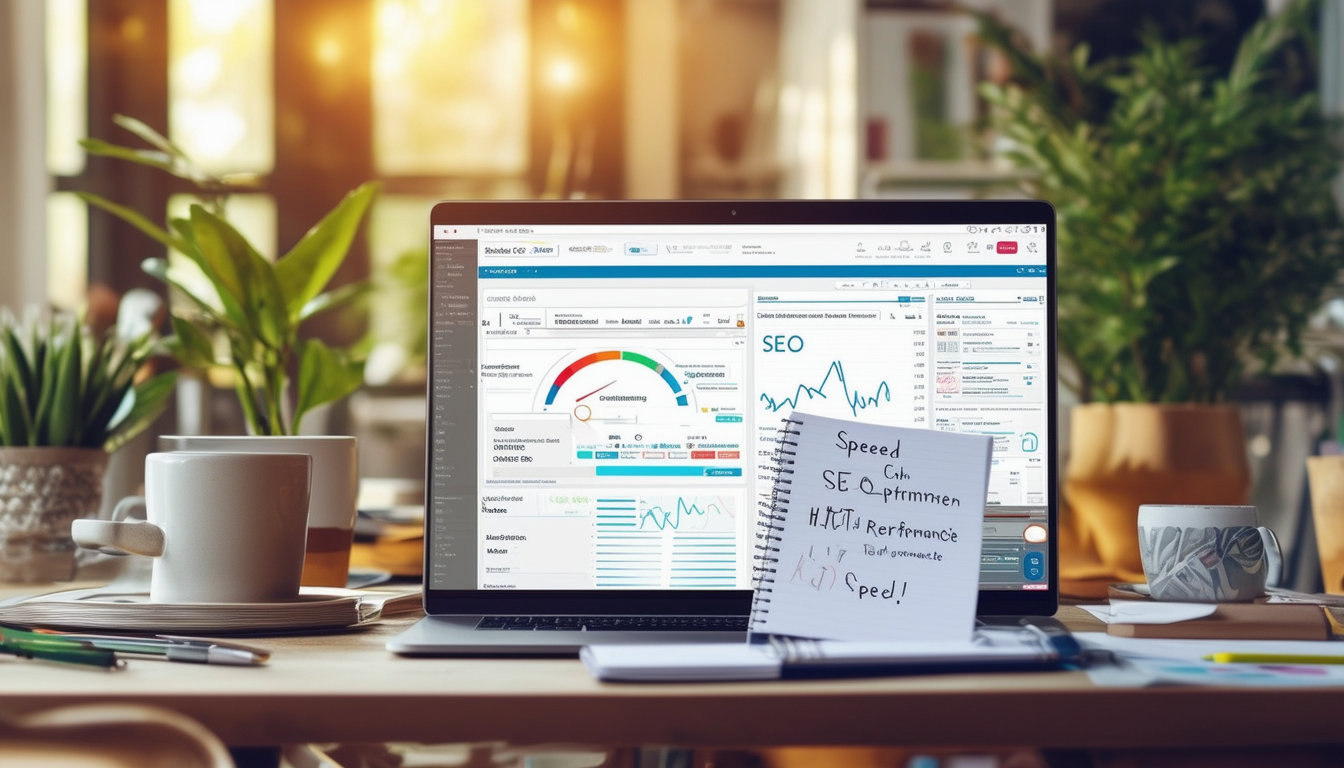
Enhancing website speed is crucial for improving SEO on your WordPress site. A faster loading site not only provides a better user experience but also contributes to higher search engine rankings. This article will delve into effective strategies for optimizing your website’s speed, thereby enhancing its overall performance and visibility on search engines.
Utilize Caching Plugins
One of the most effective methods to boost website speed is by implementing caching plugins. Tools like WP Rocket can significantly improve your load time by caching resources and pre-loading pages, making the whole process seamless. Automatically optimizing your site in the background, caching plugins reduce the server’s workload, allowing users to enjoy a quicker browsing experience.
Optimize Images
Large image files can drastically slow down your site. Therefore, it’s essential to compress images before uploading them and implement lazy loading techniques. This means only loading images when they enter the viewport, which helps decrease initial load times. Using plugins that support this feature can streamline the process.
Minimize CSS and JavaScript Files
Another way to enhance your site’s speed is by minimizing CSS and JavaScript files. This can be done through using minification plugins, which remove unnecessary spaces, comments, and characters from your code. A compact codebase improves loading speed and contributes positively toward your WordPress SEO.
Select a Fast Theme
Your choice of theme plays a significant role in your site’s performance. Opting for a fast theme specifically built for speed can dramatically enhance your WordPress SEO. Ensure that your theme is well-coded, lightweight, and responsive to ensure optimal performance across devices.
Leverage Content Delivery Networks (CDN)
A Content Delivery Network like Cloudflare can distribute your website’s content across multiple servers globally. This ensures that visitors load your website from the closest server, significantly enhancing load times regardless of their geographic location. Using a CDN is a valuable strategy to bolster not only speed but also reliability.
Implement Browser Caching
By setting up browser caching, you instruct the user’s browser to store certain files locally. When they return to your site, these files load faster because they don’t need to be fetched from the server again. This greatly enhances the overall user experience and contributes positively to SEO.
Use SEO Optimization Tools
With plugins like Yoast SEO, you can efficiently monitor and optimize your site for search engines. This plugin provides actionable suggestions for improving your SEO while also considering website speed as a critical factor. By following its recommendations, you can increase visibility and enhance your site’s performance.
Additional Resources
If you’re interested in a comprehensive approach to enhancing your WordPress SEO and performance, refer to the following resources: Optimize WordPress Site SEO and Performance, WordPress SEO Guide by HubSpot, and Optimize Your WordPress Language Plugin. These articles offer invaluable insights and strategies for achieving your website optimization goals.
Website Speed Enhancement Methods for Improved SEO on WordPress
| Method | Description |
| Use Caching Plugins | Implement plugins like WP Rocket to cache resources, leading to faster load times. |
| Optimize Images | Compress images and use lazy loading to save bandwidth and improve load speed. |
| Minify CSS and JavaScript | Reduce file sizes by minifying CSS and JavaScript using plugins such as Autoptimize. |
| Utilize a Content Delivery Network (CDN) | Leverage a CDN like Cloudflare to distribute server load and decrease response times. |
| Select a Fast Theme | Choose a lightweight and responsive theme optimized for speed and performance. |
| Implement Browser Caching | Set browser caching to store resources locally, reducing load times on repeat visits. |
| Limit Plugins | Reduce the number of plugins to only essential ones to avoid slowdowns caused by bloat. |
| Regularly Update Plugins and Themes | Keep all components up-to-date for optimal performance and security enhancements. |
| Deactivate Hotlinking | Prevent other sites from linking directly to your images, conserving your bandwidth and speeding up your site. |
Enhancing Website Speed for Improved SEO on WordPress
Website speed plays a crucial role in SEO and overall user experience. A faster website not only leads to higher search engine rankings but also keeps visitors engaged. In this article, we will explore effective strategies to boost your WordPress site’s speed, which in turn will enhance its SEO performance.
Utilizing Caching Plugins
One of the best ways to improve your website’s speed is through caching. Implementing a caching plugin like WP Rocket can significantly reduce page loading times by storing static versions of your pages. When users visit your website, they will be served the cached version, minimizing server response time. This automation allows for a remarkable increase in page load speed without requiring in-depth technical knowledge.
Choosing a Fast Theme
The choice of theme can have a profound impact on your website’s loading performance. Opt for a lightweight theme that prioritizes speed over flashy designs. Themes that are optimized for performance often come with minimal scripts and styles, ensuring swift loading times. Conduct research on theme performance and select one that perfectly balances aesthetics and speed.
Optimizing Images
Large images can slow down your website considerably. To mitigate this, it is essential to compress images without sacrificing quality. Tools like Imagify or Smush can assist in compressing images before uploading them. Additionally, employing lazy loading helps defer the loading of images until they are needed, significantly improving page speed for image-heavy websites.
Minifying CSS and JavaScript Files
Unoptimized CSS and JavaScript files can contribute to increased loading times. By minifying these files, you remove unnecessary characters and spaces that can slow down rendering. Plugins like Autoptimize can simplify this process, allowing you to optimize these files easily and enhance performance without technical overhead.
Implementing a Content Delivery Network (CDN)
A Content Delivery Network (CDN) can drastically improve loading times, especially for visitors located far from your server. CDNs cache your website content across multiple geographical locations, ensuring that users receive data from the nearest server. By using services like Cloudflare or MaxCDN, you can reduce latency and speed up content delivery to users worldwide.
Enabling Browser Caching
Browser caching allows users’ browsers to store certain elements of your website locally, so they do not need to be reloaded each time a user visits. By enabling browser caching, you can enhance returning users’ experience significantly. Setting rules in your .htaccess file or utilizing caching plugins can facilitate this process.
Regularly Testing Your Website Speed
It’s essential to regularly test your website speed to understand how your optimizations are performing. Tools like GTmetrix or Pingdom provide valuable insights into loading times and performance metrics. These insights can help you identify areas for improvement and ensure your website remains optimized as it grows.
Using SEO Plugins
WordPress offers various SEO plugins that can assist in not only optimizing content but also enhancing speed. Plugins like Yoast SEO can optimize your website’s structure for search engines while integrating performance-enhancing features. It’s crucial to choose plugins that are well-optimized for speed to prevent any hindrance to your loading times.
FAQ: Enhancing Website Speed for Improved SEO on WordPress
What are the key benefits of enhancing website speed for SEO? Enhancing your website’s speed can lead to better user experience, lower bounce rates, and higher search engine rankings, ultimately driving more traffic to your site.
How can I improve my WordPress site’s loading speed? To improve your WordPress site’s loading speed, consider compressing images, utilizing lazy loading, and minimizing your CSS and JavaScript files.
Is it necessary to use caching plugins for speed optimization? Yes, using caching plugins such as WP Rocket can significantly enhance your page loading speed by automating the caching process of your resources.
What themes are best suited for improving WordPress SEO? Choosing a fast and lightweight theme can dramatically improve your page load time, which is a crucial factor for SEO performance.
How to implement browser caching on a WordPress site? You can easily set up browser caching by configuring your caching plugin settings or by adding specific rules to your .htaccess file.
What role does a Content Delivery Network (CDN) play in website speed? A CDN, like Cloudflare, helps distribute your content across various locations, allowing users to access data from a server closer to them, which enhances loading speed.
Can I speed up my WordPress site without plugins? Yes, you can improve your WordPress site’s speed by optimizing images manually, using browser caching, and minimizing CSS and JavaScript files directly through your theme’s settings.
What are some effective techniques to compress images on my site? You can use image optimization tools or plugins to compress images without losing quality, which can significantly reduce loading times.
How important is mobile optimization for website speed? Mobile optimization is extremely important as search engines prioritize mobile-friendly sites, and improved mobile speed can boost your overall SEO ranking.
What are common mistakes to avoid when optimizing for speed? Common mistakes include neglecting to optimize images, failing to use a caching solution, and not testing your site speed regularly to identify areas for improvement.

